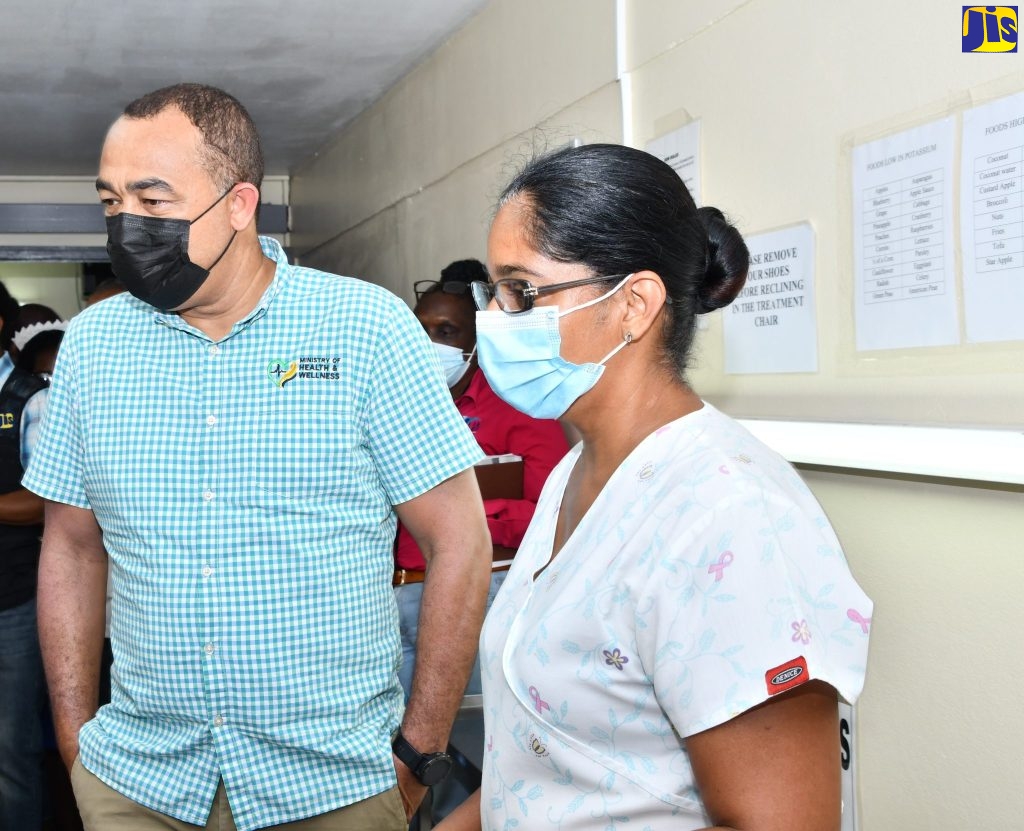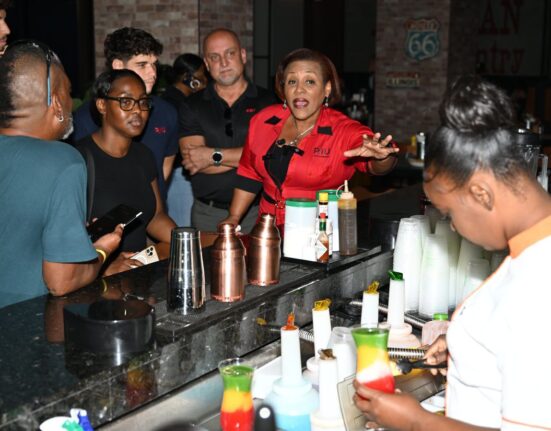
The prevalence of kidney disease among Jamaicans has become increasingly worrying, according to Minister of Health and Wellness, Dr Christopher Tufton.
The minister was speaking with journalists after touring the Cornwall Regional Hospital’s (CRH) Renal Department on Friday (November 4), to view dialysis machines used to aid patients with renal failure.
“There are 18 machines here [at CRH] and 104 patients that are being treated at least twice per week. The real challenge though, despite the best efforts, is that we have a 400 to 500 waiting list [in the western region], because renal issues, kidney related issues, based on lifestyle, based on consumption habits, is a major challenge that is developing into a crisis in the country,” he stated.
Kidney dialysis is the process of removing excess water, solutes, and toxins from the blood when organs can no longer perform these functions naturally.
Tufton said data shows that up to 900 persons require dialysis annually, noting that this “is an increasing number”.
This, he pointed out, “means that, even with the best efforts to add more [dialysis] machines, you are going to have a waiting list, and it is a crisis at this rate.”
Tufton further argued that kidney issues are costly to treat at private health facilities, pointing out that the number of treatments could amount two or three per week, with the cost totalling “a tidy sum, which most Jamaicans cannot afford.”
He said the solution for persons on the CRH’s waiting list would be the addition of more dialysis machines.
The minister noted, however, that “we are restricted, here at Cornwall [Regional Hospital]”, consequent on construction activities at the institution, “so space is relatively limited.”
“What I am being told is that two additional machines could offer some additional support. We will look into that to see to what extent those can be acquired and whether we can accommodate them in the space,” he added.
Meanwhile, Tufton encourages citizens to do more screening for the early detection and treatment of kidney related issues.
“They don’t need [to get to] the extreme situation of being treated through [dialysis]. I really want to encourage Jamaicans to go to their health centres, go to their doctor, and as part of the screening process, examine their kidney functions, so they know what can be done to sustain them,” he emphasised.
The minister also indicated that Jamaica’s kidney transplant programme, which is undertaken in collaboration with bi-lateral partners, could be further bolstered.
“It is a limited programme and one that I think we could do more of, and we must develop it. There are many things that need to be put in place [such as] legislation around organ registry and other important aspects of supporting organ donation,” Tufton stated.
Meanwhile, nurse in the CRH’s Renal Department, Heather Headley, said dietary and lifestyle changes are critical in preventing kidney disease.
“The most common cause of renal failure is diabetes… second is hypertension. So we want to prevent the diabetes and hypertension, or if you have these illnesses, you want to slow the progress of going towards renal failure and other diseases. Medication compliance and dietary changes are very important,” she pointed out.





